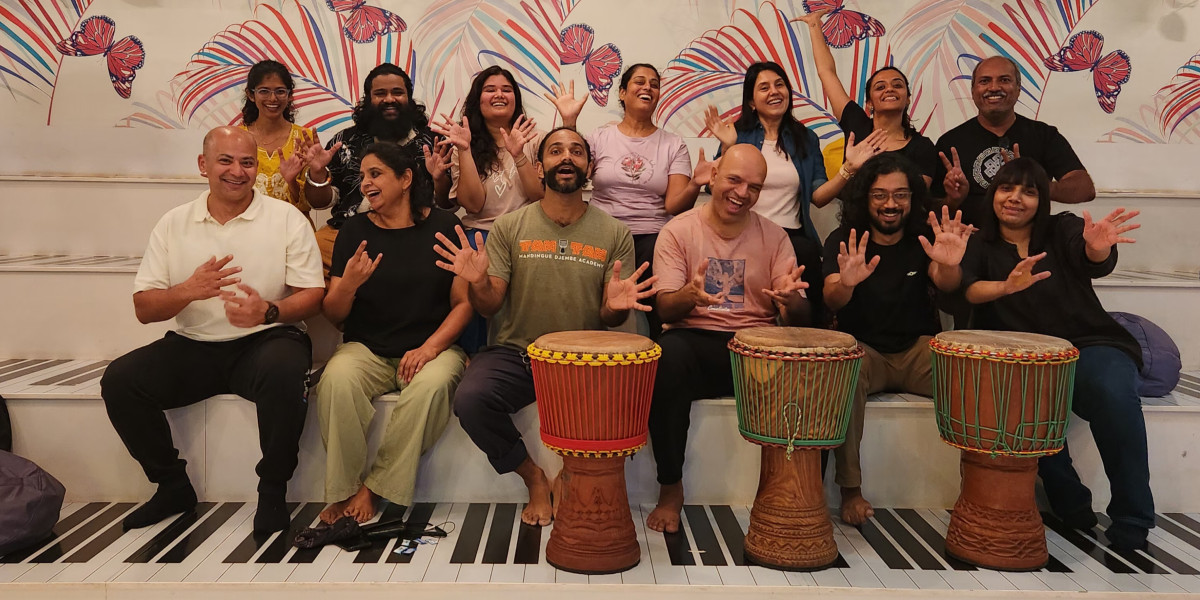Introduction: Discover the Power of Drum Circles
Drum circle facilitator training is more than just learning to play drums—it is about leading experiences that inspire collaboration, creativity, and emotional connection. By becoming a certified facilitator, you gain the ability to create sessions that are both engaging and transformative.
Organizations, schools, and wellness centers increasingly recognize drum circles as a tool for enhancing teamwork, reducing stress, and promoting mindfulness. With structured guidance, participants not only explore rhythms but also develop interpersonal skills, making facilitator training a valuable investment for both personal and professional growth.
Section 1: Understanding Drum Circles
Drum circles are inclusive spaces where participants create music together, often without prior musical experience. In drum circle facilitator training, you learn the fundamentals of group drumming, including rhythm, tempo, and participant engagement.
Additionally, facilitators explore the psychological and cultural aspects of drumming. Understanding the historical context and social impact of drum circles helps in creating meaningful experiences that resonate with diverse audiences, ensuring each session leaves a lasting impression.
Section 2: Benefits of Drum Circle Facilitation
The benefits of drum circle sessions extend beyond music. They encourage teamwork, enhance communication skills, and foster a sense of belonging among participants. Additionally, rhythmic activities can alleviate stress and promote emotional well-being.
Training equips facilitators with techniques to maximize these benefits. For instance, carefully structured sessions can energize corporate teams, improve classroom dynamics, or strengthen community bonds, demonstrating the versatility and value of drum circle facilitation.
Section 3: Core Skills Developed in Training
Drum circle facilitator training emphasizes critical skills such as leadership, adaptability, and group management. Participants learn how to guide rhythms, encourage participation, and create inclusive environments where everyone feels comfortable.
Moreover, facilitators acquire conflict-resolution strategies and techniques for managing group energy. These skills ensure that every session remains productive, harmonious, and enjoyable, enhancing the overall effectiveness of the drum circle experience.
Section 4: Essential Tools and Instruments
Effective facilitation requires the right instruments and setup. Trainees explore various percussion instruments like djembes, bongos, congas, and shakers, understanding their tonal qualities and uses within a drum circle.
Additionally, facilitators learn to optimize seating arrangements, acoustics, and instrument placement. Proper handling, transport, and maintenance of equipment are also covered, ensuring that each session runs smoothly and professionally.
Section 5: Structuring a Successful Drum Circle
One of the most vital aspects of training is learning how to structure a session. Facilitators plan activities with clear objectives, starting with warm-ups, moving into rhythm-building exercises, and ending with reflection or cooldown periods.
Flexibility is equally important. Facilitators are taught to adapt the session in real-time based on group energy, skill levels, and engagement, ensuring that each participant has a positive and rewarding experience.
Section 6: Engaging Different Audiences
Drum circle facilitator training prepares you to work with various audiences, from corporate teams to educational groups and community organizations. Understanding the unique needs of each audience helps facilitators tailor activities for maximum impact.
For instance, corporate sessions may focus on team cohesion and stress relief, while school programs can emphasize creativity and social interaction. This adaptability ensures the drum circle is effective, engaging, and enjoyable for all participants.
Section 7: Certification and Career Opportunities
Completing drum circle facilitator training often leads to certification, validating your skills as a professional facilitator. Certified individuals can conduct workshops, corporate team-building sessions, and community events, enhancing their career prospects.
Certification also provides access to professional networks, resources, and continuous learning opportunities. This ensures facilitators remain updated with the latest techniques, trends, and best practices in the growing field of drum circles.
Section 8: Overcoming Common Challenges
Facilitating drum circles can come with challenges, such as participant reluctance, varying skill levels, or group dynamics. Training provides strategies to address these issues effectively.
By fostering an inclusive, encouraging environment, facilitators can motivate participants to engage fully. Techniques like guided improvisation, supportive feedback, and energy management help ensure that challenges become opportunities for learning and connection.
Section 9: Expanding Your Impact Across India
After completing drum circle facilitator training, you can lead sessions across India in schools, corporate organizations, wellness centers, and community events. This not only spreads the benefits of group drumming but also fosters cultural enrichment and social connection.
By combining rhythmic leadership with creativity and facilitation skills, certified individuals contribute meaningfully to communities, promoting collaboration, mindfulness, and joy through drumming. Explore more about initiatives and sessions at drum circle india.
Conclusion: Your Rhythmic Journey Begins
Enrolling in drum circle facilitator training is an investment in personal growth, leadership, and community engagement. By mastering facilitation, understanding rhythm, and developing essential skills, you can lead sessions that inspire, energize, and connect participants.
Whether in corporate environments, educational programs, or community events, trained facilitators play a pivotal role in promoting collaboration, creativity, and emotional well-being. Start your journey today and make a lasting impact in India with the transformative power of drum circles.
















